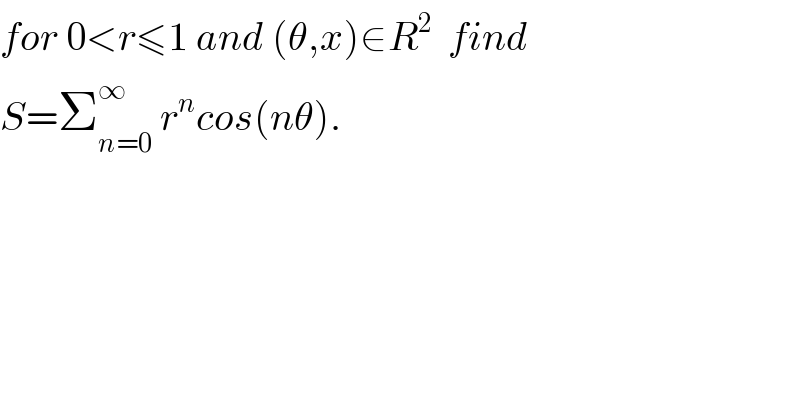
Question and Answers Forum
Previous in Relation and Functions Next in Relation and Functions
Question Number 30601 by abdo imad last updated on 23/Feb/18

Commented byabdo imad last updated on 24/Feb/18

| ||
Question and Answers Forum | ||
Previous in Relation and Functions Next in Relation and Functions | ||
Question Number 30601 by abdo imad last updated on 23/Feb/18 | ||
 | ||
Commented byabdo imad last updated on 24/Feb/18 | ||
 | ||